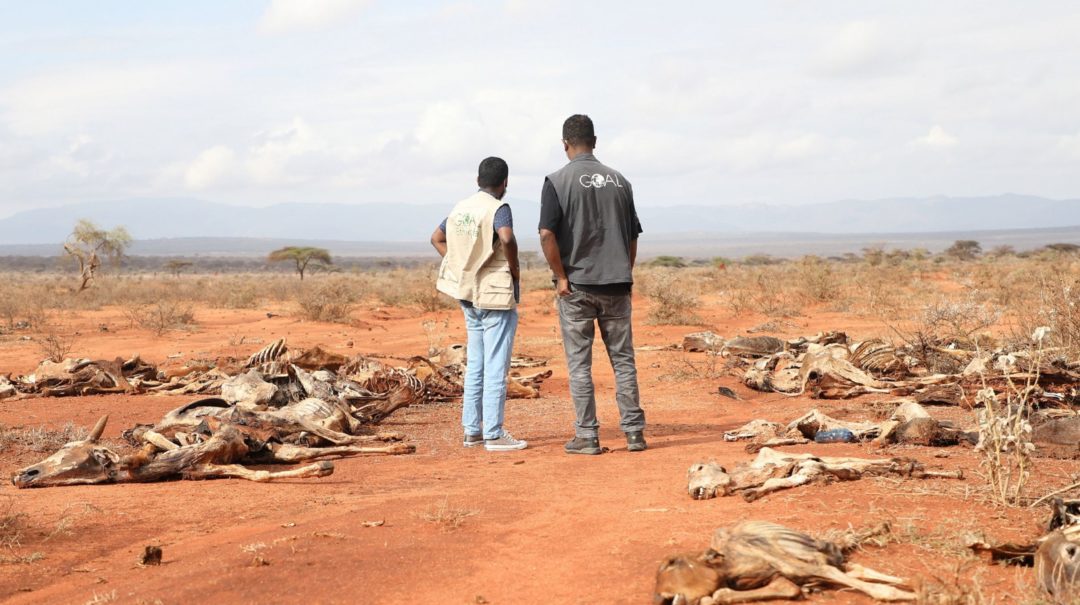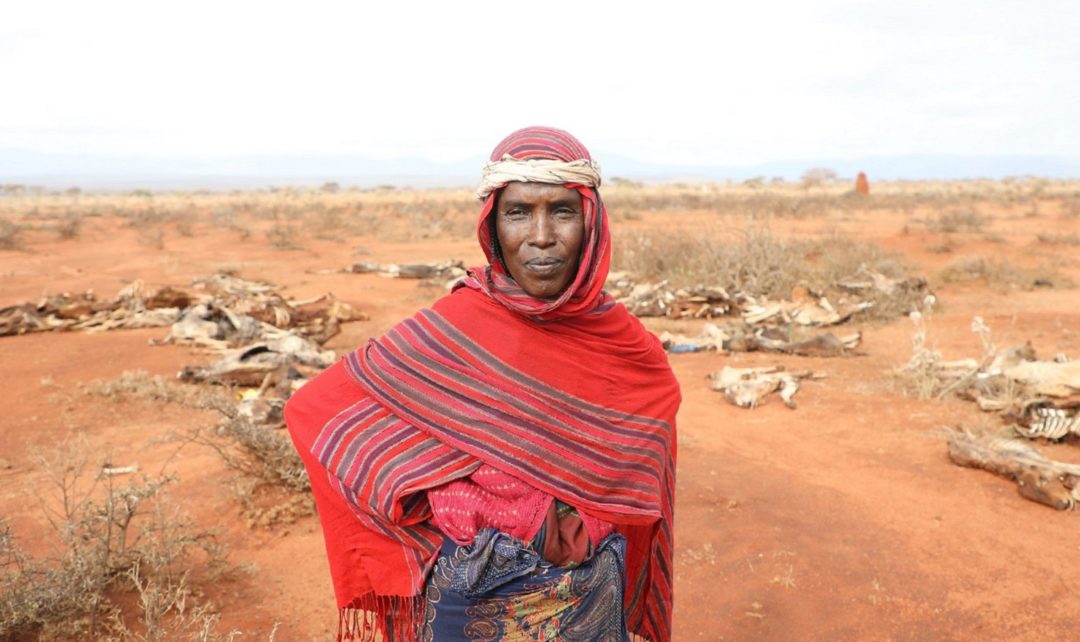 Stories
Stories
April 8, 2022 • 3 min read
GOAL teams currently supporting farming communities in Borena Zone experiencing climate related devastation.
For many communities in Borena Zone in Ethiopia, livelihoods are mainly pastoral. Livestock herding and rearing provides an income, a source of food, a symbol of pride and social status for families and communities. Bi-modal rainy seasons are a vital part of the annual pastoral cycle here. The longer rainy season, called “Ganna”, provides 70% of water required for people in the Zone. The shorter rainy season, called “Hagaya”, provides the remaining 30%. 1.2 million people and 6.8 million livestock living in Borena Zone rely on the seasonal rains.
In 2021 and 2022, three consecutive rainy seasons have failed to arrive. The land remains dry and local communities are struggling to provide food and water for their families. To make matters worse, the region has been infested with desert locusts in recent years, destroying what little local farmers could harvest.
A hammer blow for local communities
The third failed rainy season was a hammer-blow to communities already trying to cope with consecutive droughts. According to the local administration, 650,000 livestock deaths were recorded in the first three months of 2022. On top of this, the upcoming rain forecast is expected to be well below normal.
The GOAL Ethiopia team recently traveled to drought affected areas in Borena Zone, to assess the impact of the drought, and how best to respond. They witnessed roadsides scattered with carcasses of dead livestock and met people struggling to survive due to lack of water.

GOAL teams assessing the impact of drought in Borena Zone, Oromia State, Ethiopia.
Local people say that drought of such magnitude has not been seen here in over 40 years. Many women stay overnight near water points, waiting for the next daily allowance of their family’s water ration. Families are also struggling to access food. According to the local authorities, nutrition screening reveals an increase of over 10% in serious cases of malnutrition, with the number of cases expected to rise.
Chulke’s Story
Chulke Woticha is a mother supporting 18 family members in Dubluk, over 600 kilometres from the country’s capital, Addis Ababa. Her house is surrounded by dried livestock dung, which is a local sign of pride, showing the size of their herd. In a short amount of time, pride has made way for survival – her family’s head of cattle has fallen from over 420 to just 20.
“We tried everything to save them. In the old days, you could move your livestock from place to place for water, depending on the season, but now it becomes impossible. We moved them even into the neighboring region yet everything dried wherever we went. Finally, we transported them here to comfort them and watch them die in the place they know most.”

Chulke Woticha, supporting a pastoral farming family of 18, lives in Dubluk, Borena Zone.
Chulke highlights the important place cattle hold for communities in the region, and the loss their death brings.
“Our cattle are not animals for us. They are everything. But they are gone. We are waiting to see what God would do with us. Unless someone or something intervene, it is going to be the toughest time ever.”
GOAL and other aid organisations are working with local authorities to support vulnerable communities in Borena Zone by deploying water trucks and providing access to other essential items. The scale of devastation, however, requires greater support from the international community, as people in Southern Ethiopia face chronic drought and hunger. You can support by donating today.
